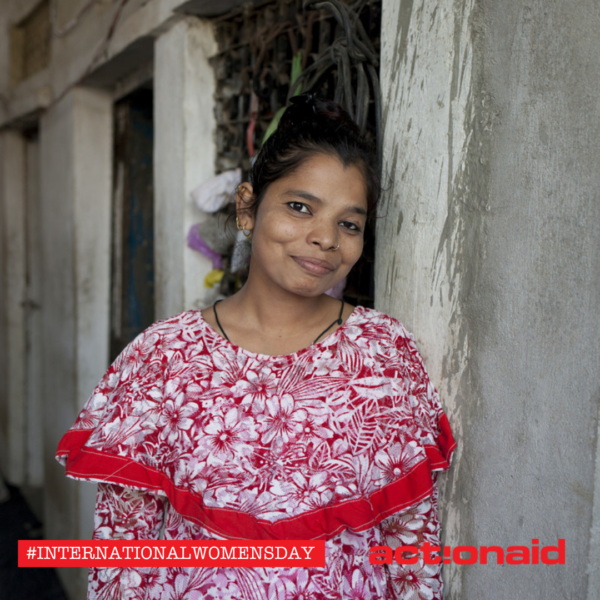From the frontlines of COVID-19 to political unrest or facing down the impacts of climate change, women have refused to sit idly by. Instead, they are leading emergency responses around the world.
Women in Bangladesh and Nigeria have made face masks to protect themselves and their community against the spread of the coronavirus. In Uganda, Italy and Cox’s Bazar refugee camp, women-friendly spaces are supporting women facing rising levels of gender-based violence. And in Vanuatu, women led the emergency preparedness and response to Cyclone Harold.
Every time there is an emergency, women are there and ready to lead. These are just some of the incredible women we work with.

Leiwia, Vanuatu
Leiwia has led her community in Vanuatu through floods, cyclones, volcanic ashfall and COVID-19. After her community was struck by cyclone Pam, Leiwia joined the Women I Tok Tok Tugeta (WITTT) network which is supported by the Australian Government Department of Foreign Affairs and Trade. It offers women a space to get support, have their voices heard and collaborate to ensure future emergency preparation.
“A lot of disasters are coming as the climate changes. If we come together, mobilise together, talk about those issues… WITTT can help Erromango [island],” Leiwia said.
The climate crisis is on the doorstep of women in Vanuatu, but with women like Leiwia at the front, communities are learning to adapt and build resilience. And along the way, she’s challenging gender norms in her community and showing what women are capable of.

Shella Cayo, Haiti
Shella is defining women’s leadership in Haiti – and when her community needed her, she was there.
She co-hosts a weekly feminist radio show about women’s rights and gender equality. Shella also uses radio to spread public health messages about COVID-19, and she has worked to distribute hygiene supplies such as soap and chlorine during the pandemic.
Her radio show is all about challenging the status quo, educating women to better know their rights and raise awareness so that they can act to improve their situations.

Talat, Bhopal India
Talat is challenging gender-stereotypes in Bhopal, India. After surviving an abusive marriage at just 17, she found ActionAid’s Gauravi Centre. There she learned how to drive an auto-rickshaw – a role typically taken on by men in the society.
“Each time I used to see auto-drivers on roads, I used to think, ‘why is it just men driving autos?’ So, when this opportunity came to me to learn how to drive, I chose it because I wanted to learn something different and be a woman auto-driver.”
When COVID-19 hit her community, she stepped up and volunteered her driving skills to deliver ration kits across the city for the Gauravi Centre. Together, Talat and other drivers delivered thousands of ration kits every day.

Marilou led the response to three typhoons in the Philippines
Marilou, The Philippines
In times of crisis, Marilou is a strong leader. After three typhoons hit her community in just three weeks, Marilou leapt into action. She went out into her community to find out what people needed and led the distribution of emergency ration kits to those who needed them most.
“When we do the distribution, we ask for their cooperation to observe physical distancing and other safety protocols. We also have a thermal scanner to check their body temperature before entering the distribution area, we also asked them to sanitize using alcohol.”
In an emergency, it’s women like Marilou who get their communities through.

Sharmin, Cox’s Bazar Camp Bangladesh
This is Sharmin, she is working on the
frontlines of the COVID-19 pandemic in one of the world’s largest refugee camps at Cox’s Bazar, Bangladesh.
Sharmin and ActionAid Bangladesh have led the creation of women-friendly spaces across the camp. These spaces have been a vital information hub, relaying life-saving health advice to women so they can protect themselves and their families from the virus.
Sharmin is a proud to be able to support the women around her.
“At the start, I was very scared….But, then, I started thinking to myself, that ‘No, as a humanitarian worker, I cannot stay working at home’. So, I returned to Cox’s Bazar.
We’re proud to be a part of a strong, inspirational global sisterhood. Women are rising and we are right behind them.